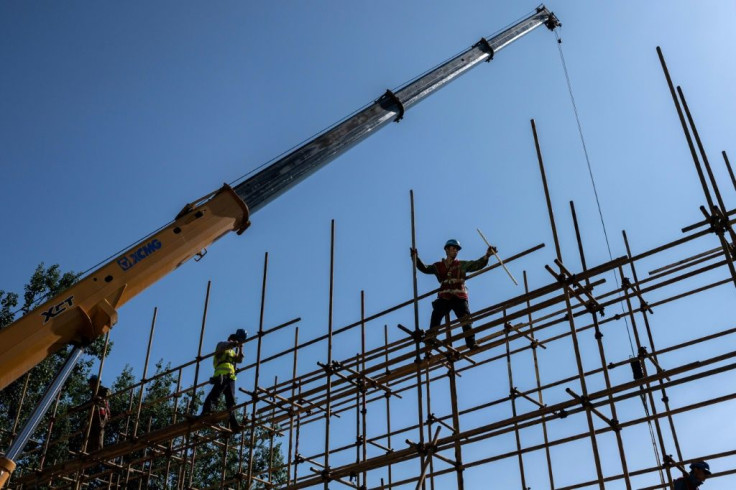China's Domestic Spending Sluggish As Economy Recovers From Virus
China's retail sales dropped in July, official data showed Friday, indicating that sluggish consumer spending could hold up the country's recovery from the coronavirus outbreak.
Retail sales -- a key indication of consumer sentiment -- shrank by 1.1 percent on-year, falling short of forecasts and suggesting many are still reticent about going out to spend time and money, even as China appears to have the virus largely under control.
The latest data follows a drop of 1.8 percent on-year for retail sales in June.
Bloomberg analysts had projected sales would recover to a modest 0.1 percent growth.
While the sale of goods just crept into positive territory, growing 0.2 percent, the catering industry was particularly badly hit, with sales down 11 percent.
The retail sector has an increasingly important role in China's economy as leaders look to consumers, rather than trade and investment, to drive growth.
A domestic consumption pickup is crucial as external demand weakens, with other countries battling the pandemic.
Fu Linghui, spokesman for the National Bureau of Statistics (NBS), said the data showed "a trend of steady recovery".

Industrial production grew by 4.8 percent in July -- the same as the previous month, but below predictions from Bloomberg analysts of 5.2 percent growth.
Meanwhile fixed asset investment for the year so far was down 1.6 percent year-on-year; an improvement on last month's data, but still weak.
"Not the best of economic numbers out of China today with both retail sales and industrial production underwhelming," said Stephen Innes, chief global markets strategist at AxiCorp.
"The glaring concerns around retail demand continue to speak volumes that it's going to take more than stimulus and deep discounts on luxury products to get people shopping again."
China is working to bounce back from a historic economic contraction in the first quarter caused by the virus, which had shut down most activity and forced people across the country to stay home.
The coronavirus -- which first emerged in the city of Wuhan late last year -- has since shut businesses and destroyed millions of jobs globally.
Unemployment in July was stable at 5.7 percent, the NBS said, level with the previous month. Analysts have warned the real level of unemployment is likely higher.
As several of the world's major economies plunge into recession, China's data suggests it is generally recovering quicker, as the first to be hit by COVID-19 and one of the first to recover.
China's GDP expanded 3.2 percent in April-June, smashing expectations and a massive improvement on the 6.8 percent contraction in the first quarter.
© Copyright AFP 2024. All rights reserved.





















